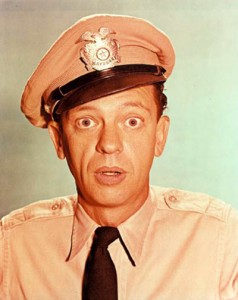Internal Training and Education
Login to reply
 LegalGuardian
8 posts
LegalGuardian
8 posts
|
I realize that each of you are trained to believe one thing, but I assure you and there is case laws that proves you are incorrect about your belief that inmates are “wards of the state” because they are in prison, as they are not “wards” at all. The term “ward” is a legal title that is only and can only be given to an incapacitated or disabled person by a probate court of law, when the person is incapable by reason of a disability or age (in cases of minors) to provide for themselves. Every prisoner, unless ordered by a probate court of law, has the legal right to make his or her own medical, mental health, and financial decisions in prison. Every time they file a medical service request they are signing a statement giving their consent to treat and every time they sign a mental health treatment plan, they are signing a statement that they give consent to treat. You guys are completely misusing the term “ward” to mean something it does not mean because it is a legal title that is codified in state law. Yes, the inmate is in the care, control, and custody of the State by and through the Dept of Corrections, but they are NOT a ward of the state – the criminal court has ZERO legal authority to issue such orders as to make the inmate a ward of the state. I also assure you that every state has a state law that requires prison personnel to abide by the legal authority of Guardian’s of any inmate (regardless of their age) housing in any state prison. This state law falls under the Interstate Compact laws, for example in Missouri it is Section 217.535 at Article IV in paragraph (i) which holds: “[T]he parent, guardian, trustee, or other person or persons entitled under the laws of the sending state to act for, advise, or otherwise function with respect to any inmate shall not be deprived of or restricted in his exercise of any power in respect of any inmate confined pursuant to the terms of this compact.” So, please stop telling me how inmates are wards of the state because they ARE NOT WARDS, they are prisoners and there is a HUGE difference between the two. If they were wards, they would loose all civil rights to give their own consent for medical and mental health treatment and to make decisions about their financial matters. When was the last time that you know of that a prisoner had to have the consent of a prison guard, case manager, or ward, to go to sick call, to receive dental services, to receive medications, or to be treated by a mental health worker? Moreover, when was the last time you know of that a court dismissed a prisoner civil rights lawsuit on the basis that a prison official had to file the lawsuit for and on behalf of the prisoner because the prisoner was a ward of the state? NEVER, that’s when. As the guardian of my ward, who is in prison, only I can file lawsuits on his behalf and only I can give consent for him to receive medical, mental health, and dental services, care, and treatment, and only I can sign prison forms for and on his behalf. Clearly none of you are actually trained about the duties and the authority of Guardian’s under state and federal statutory laws and court rules. |
 Campi
227 posts
Campi
227 posts
|
The inmate will receive all the care they are legally entitled to. If they are disabled they will be put in a housing unit equipped to deal with whatever ailment they have. As for anyone outside of the prison deciding that they are not getting proper care they would have to take the state to court and have a judge decide if they have violated any laws or rights of the inmate. disabilities other than physical or social do not fall under my duties because the major aspects of my job is to enforce rules keep the inmates in the prison and maintain a safe, clean, and secure area. |
 irish assassin
286 posts
irish assassin
286 posts
|
I can’t speak for juvinille corrections but in the adult system here inmates are indeed “wards” of the state. Now an adult inmate who is found able to make his own decisions can refuse medical treatment and sign a form stating they willingly did so. This does not apply where life saving action is needed. A DNR order would be needed to deny care in that situation. If they are mentally incapable of making choices then it falls to the judgement of the prison staff. Guardianship rights from outside sources have little or no impact on the care received while someone is inside the prison system. Some exceptions do apply, as in the choice of services provided to an inmates remains if they should die in custody and when to shut of life support systems if so used, etc…. Other than the special situations the department has a duty to act and make the best decisions on behalf of said inmate. Therefore needed medical care cannot be unreasonably denied by the state but an inmates guardian on the outside does not have the ability to dictate said care. |
 Mick
307 posts
Mick
307 posts
|
LegalGuardian. When a Juvenile is sentenced to custodial care they become the responsibility of the State “Wards of the State” (if you will) even though they have Parents/Guardians. The State becomes their Guardian for the time they are in custody and can make any Medical steps to ensure that inmates safety. Now if the State has that power for Juveniles if has the same power for Adults that require a Guardian. And to answer your querie about how we handle these individuals. We have in our Prison. Qualified Psychiatrists, Psychologists and Psychiatric Nurses that run our High Dependency Unit. |
 knuckle dragger
42 posts
knuckle dragger
42 posts
|
Legalguardian…… As is typical, a number of people could tell you what they deem to be the truth and in good faith try to explain and anwswer your question, what ever it is. But until you hear what you want this will just keep going around in circles. You’ll be a great jail house lawyer someday. The end |
 LegalGuardian
8 posts
LegalGuardian
8 posts
|
No, actually it’s the law |
 knuckle dragger
42 posts
knuckle dragger
42 posts
|
Legalguardian……………. it’s apples and oranges, Sorry I can’t help. |
 LegalGuardian
8 posts
LegalGuardian
8 posts
|
First, as I pointed out in my opening . . . I am not a correctional officer. I am rather, an officer of the Court who is appointed as Guardian of an adult inmate, so I know what I speak about here. The authority of a guardian inside prisons is rooted in statutory and case laws, so no, I am not wrong in what I say. Again, it is very obvious that no training is provided – that is not to say any of you are stupid because you are not, but it is to say that prison officials are not training CO’s as they should be doing. So, before you go attacking me and purporting that I am wrong, which I am not wrong, try doing some research. Examine your DOC regulations, your State laws, and court rulings – read the contracts that prison contract providers operate under to provide medical and mental health treatment. Educate yourself |
 RCJ
49 posts
RCJ
49 posts
|
Legalguardian, it appears to me that you haven’t a clue regarding the duties of a Corrections Officer. Safety and security of the faclility is our main concern, at least where I come from. It’s not our job to cater to every whiners needs. Inmates are entitled to fair and impartial treatment, internal due process along with a few other things. It’s the officers job to enforce that in order to maintain a safe environment inside the facility. Where I come from we go through all kinds of training regarding these special cases. Maybe I’m stupid, but I don’t completely understand your question as you are not being specific on what needs this person that you are a guardian for has. I’m thinking that his or her victims also have needs and maybe more so that this perp. Your question sounds to me like it could be better answered by and adminisrator or someone involved with the inmate programs. |
 knuckle dragger
42 posts
knuckle dragger
42 posts
|
Legalguardian……. What are you trying to get at other than being completely wrong? It appears you ask questions that you already think you have the answers for. It appears that you are just another individual that got his feelings hurt because somewhere along the line someone told you no. I get the impression you may possibly be an ambulance chaser or have the law library saved in your lap tops favorites. |
 LegalGuardian
8 posts
LegalGuardian
8 posts
|
From what I am seeing it is apparent that training is not provided to correctional officers working in State prisons, at least not by what I am seeing in the responses given and the lack of anyone coming forward to say otherwise. In response to the reply below. It is a myth that inmates are wards of the State, because a criminal court simply does not have the legal authority to appoint an individual to be a ward of the State and incarceration does not equate to guardianship. The term “ward” is a legal term that can only be given by a probate court, and occurs only when the person is given a Guardian. It is a conflict of interest for a State correctional department to be the Guardian of one whom it imprisons because the State cannot serve two masters, e.g the criminal court and the probate court. Every inmate, unless they have a Guardian, has the legal right to make his or her own medical and mental health treatment decisions, to manage their only inmate accounts, and to decide whether to pursue any internal grievance procedure and process. An inmate who has a Guardian does not have these civil rights. That inmate must rely upon his or her legal Guardian making these decisions for them, in accordance with the laws governing guardianship’s in the state for which the guardianship was enacted. In terms of my ward, no prison official has the legal authority to make any of these decisions for me nor for my ward, except by order of the probate court that granted the guardianship or where there is a bone fide life – death emergency and there is no time to call me to obtain consent to treat. Any prison official who would make such decisions is liable to both me and my ward in civil suit and they have no immunity from being sued. It would not only constitute involuntary treatment, but can also rise to being prisoner abuse and physical assault depending on what treatment is given. I think it is unfortunate that correctional officers are not provided the necessary and proper training they need to understand that adult inmates who have a legal guardian fall under a very specific set of laws that no other inmates does – which is needed to insure that the inmate with a guardian has equal access to prison services, programs and activities. |
 knuckle dragger
42 posts
knuckle dragger
42 posts
|
Legalguardian……….In my experience a large majority of inmates coming through the system have some type of psychological handicap along with learning disabilities and boarder line mental retardation. The Title II, Americans With Disabilities Act. Covers and protects those individuals that need special housing and programs. #1 Protect them from predatory behavior #2. Maintain programming and health services for those individuals. In our system there is a large constituency of mental health workers and specialized learning teachers. Once the inmate enters the facility, programming and health services begin with detailed tests and interviews to establish placement with best practices, so that the individual will have the possibility of serving their time with all available opportunities afforded them. When a vulnerable adult comes into our system like all inmates they are wards of the state all of their medical both physical and psychological are under the facilities control and any outside prior medical practices or treatments are taken under advice but the facilities medical staff have the final say in treatment and programming. We have yearly standardized training in dealing with inmates who have special needs. There is also a referral system that can get an inmate placed for observation if a CO feels there is just cause. |
 LegalGuardian
8 posts
LegalGuardian
8 posts
|
Actually, mental illness is not the only reason a person requires a legal Guardian, as such is based not on the specific type of disability they have, but rather whether they are substantially impaired in one or more of the six major life activities. As such, a person can need a legal Guardian because he or she has mental, developmental, neurological, brain, learning, or physical disabilities that prevent him or her from being able to provide for themself, protect their own interests, care for themself, or insure they are in a safe environment. |
 Mick
307 posts
Mick
307 posts
|
Is the inmate you are the Guardian for Mentally Handicapped? The reason I ask is if the person is an adult it would be the only reason to have a Legal Guardian. |
 LegalGuardian
8 posts
LegalGuardian
8 posts
|
First, let me say that I do not work in any prison, but rather, I am a dully appointed legal Guardian of an offender in prison. I am curious as to what training, education, and supervision exists for correctional officers in what to do and not do when an adult inmate has a legal Guardian. In every state that has an Interstate Compact Agreement to accept inmates from another state, a provision exists that requires those working for and in a prison system to abide by the duties and powers of a Guardian based on the laws where the inmate is transferred from. However, what I have found is that there is no training, education, nor any supervision in what to do and not do when an adult inmate has a Guardian. Most commonly is the incorrect belief that a guardianship ceases to exist when and because the person is in a prison. This is contrary to state laws under the Interstate Compact Agreements states use to accept out of state inmate transfers, as well as the 1st, 8th and 14th Amendment rights and liberties of inmates and their Guardians. So what training, education, and supervision do you receive? |
* For speed and versatility, Corrections.com has been relaunched in opensource. Some older postings dates may be affected.


